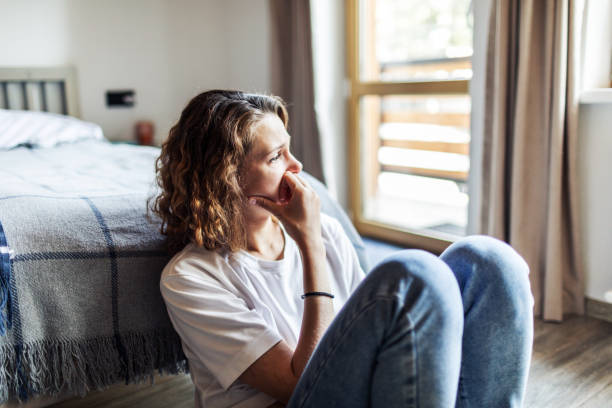In today’s fast-paced world, stress and anxiety have become almost unavoidable companions. From demanding jobs to financial pressures and personal responsibilities, it’s easy to feel overwhelmed. While medication can be helpful in severe cases, more and more people are turning to natural remedies to manage their mental well-being safely and sustainably.
This in-depth guide explores the best natural remedies to reduce stress and anxiety, offering practical tips, lifestyle changes, and holistic approaches backed by science and tradition.
Understanding Stress and Anxiety: A Quick Overview
What Is Stress?
Stress is your body’s natural response to any demand or threat, whether physical, emotional, or psychological. Short-term stress can be helpful—boosting alertness and performance—but chronic stress can lead to serious health issues.
What Is Anxiety?
Anxiety is a sustained feeling of worry, nervousness, or fear. Unlike short-term stress, anxiety tends to linger and can interfere with everyday life.
Why Natural Remedies Work
Natural remedies often treat the root cause instead of merely masking symptoms. They also minimize dependency and side effects, promoting long-term wellness and emotional balance.
Key Benefits
- Safe and gentle on the body
- No prescription needed
- Encourages mindfulness and holistic health
- Supports overall mental clarity and resilience
Let’s now explore the most effective natural remedies for reducing stress and anxiety.
Herbal Remedies for Calm and Clarity
Nature has gifted us with powerful herbs known for their calming and soothing properties.
Ashwagandha
Ashwagandha is an adaptogen used in Ayurvedic medicine to reduce cortisol (stress hormone) levels and promote emotional balance.
Benefits
- Reduces stress and anxiety
- Improves sleep quality
- Boosts mood and energy
How to Use
- Capsules
- Powder in smoothies or teas
Chamomile
Known for its calming effect, chamomile tea is a go-to for those struggling with restlessness and insomnia.
Benefits
- Helps ease nervous tension
- Promotes better sleep
- Gentle and suitable for all ages
Lavender
Lavender essential oil is widely used in aromatherapy for stress relief and anxiety management.
How to Use
- Diffuse in your room
- Add to a warm bath
- Apply diluted oil to temples or wrists
Mindfulness and Meditation Practices
Meditation is not just a spiritual practice—it’s a science-backed method to reduce anxiety and promote emotional clarity.
Deep Breathing Exercises
Try This: 4-7-8 Breathing Technique
- Inhale for 4 seconds
- Hold for 7 seconds
- Exhale for 8 seconds
This simple exercise can calm your nervous system in minutes.
Mindfulness Meditation
Being fully present in the moment reduces overthinking, which is often the fuel for anxiety.
How to Start
- Sit comfortably
- Focus on your breath
- Acknowledge thoughts without judgment
Start with just 5 minutes a day and gradually increase.
Physical Activity and Movement
Moving your body is one of the best ways to release pent-up tension and boost endorphins.
Walking in Nature
Known as “forest bathing” in Japan, walking in natural environments can lower stress hormones and elevate your mood.
Yoga and Tai Chi
These ancient practices combine movement, breath, and mindfulness.
Benefits
- Improves flexibility and posture
- Calms the mind
- Reduces physical tension
Dancing
Yes—dancing counts! It’s fun, expressive, and a great way to let go of stress.
Balanced Nutrition for a Balanced Mind
What you eat affects how you feel. A balanced diet supports mental health, reduces inflammation, and promotes stable moods.
Foods That Help Reduce Stress
- Leafy greens (magnesium-rich)
- Berries (antioxidants)
- Fatty fish (omega-3s)
- Nuts and seeds
- Whole grains
Stay Away From
- Caffeine (especially in excess)
- Sugar and refined carbs
- Processed snacks and fast food
Herbal Teas for Stress Relief
- Lemon balm
- Peppermint
- Valerian root (especially for sleep)
Aromatherapy and Essential Oils
Scent is deeply connected to the brain’s emotional center. Aromatherapy uses plant-based oils to trigger calming responses.
Best Oils for Anxiety
- Lavender: Calming and sleep-enhancing
- Bergamot: Uplifting and energizing
- Frankincense: Grounding and meditative
How to Use
- Inhale directly from the bottle
- Use a diffuser
- Mix with carrier oil for massage
Journaling and Creative Expression
Journaling
Writing down your thoughts and feelings helps release emotional pressure.
Journaling Prompts
- “Today I’m feeling…”
- “What’s on my mind right now?”
- “What am I grateful for?”
Creative Outlets
Painting, singing, playing an instrument, or even gardening can be deeply therapeutic.
Sound Therapy and Music Healing
Sound can influence brainwaves and promote relaxation.
Try These Options
- 432 Hz music for emotional balance
- Tibetan singing bowls
- Guided meditations with binaural beats
Benefits
- Reduces cortisol levels
- Enhances emotional processing
- Improves sleep quality
The Power of Social Connection
Human connection is a powerful remedy for anxiety.
Talk It Out
Speaking to someone you trust can instantly lighten your emotional load.
Hug More
Hugs release oxytocin, the feel-good hormone, and reduce stress.
Join a Support Group
Whether online or in-person, sharing experiences with others helps you feel less alone.
Lifestyle Changes That Support Mental Wellness
Get Enough Sleep
Lack of sleep increases anxiety and reduces your ability to cope with stress.
Tips for Better Sleep
- Maintain a consistent schedule
- Avoid screens an hour before bed
- Use calming scents like lavender
Set Healthy Boundaries
Say no when needed. Overcommitment leads to burnout.
Reduce Screen Time
Too much social media can increase anxiety and comparison.
Supplements That May Help
Before trying supplements, always consult with a healthcare provider.
Magnesium
Known as “nature’s chill pill,” magnesium calms the nervous system.
L-Theanine
Found in green tea, this amino acid promotes relaxation without drowsiness.
Omega-3 Fatty Acids
Supports brain health and reduces symptoms of depression and anxiety.
When to Seek Professional Help
Natural remedies can be incredibly effective, but sometimes professional help is necessary.
Signs You May Need Extra Support
- Persistent, uncontrollable worry
- Panic attacks
- Social withdrawal
- Trouble sleeping or eating
- Thoughts of self-harm
Mental health is just as important as physical health. Don’t hesitate to consult a therapist or psychiatrist if needed.






